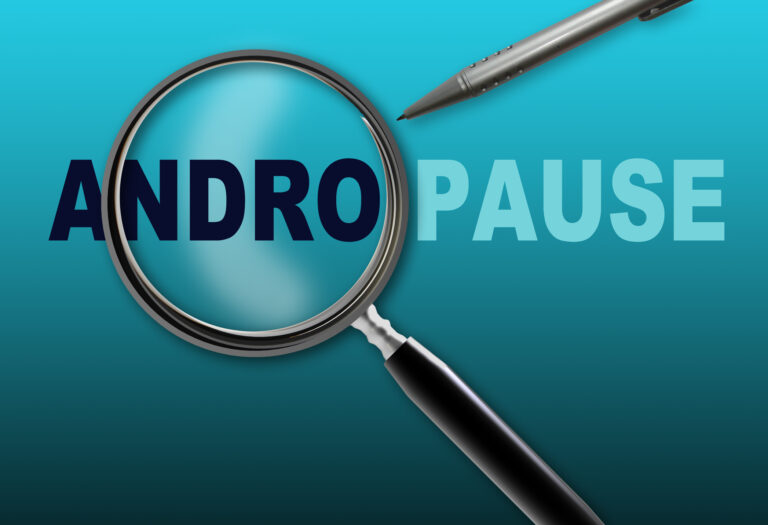Male Menopause, more correctly called “Andropause” is on the rise. Also referred to as grumpy old man syndrome, hypogonadism, irritable male syndrome and hypotestosteronism, andropause effects about 30% of healthy men before the age of 50 and 50% of healthy men greater than 60 years old. Beginning around 30 years of age, male testosterone levels drop about 10% per decade. Androgen (hormone) levels fall as well. In many cases, this decline is more rapid, showing as early as age 40.
While female menopause occurs in a fairly condensed period of time, andropause can last for decades. Some males will never experience the symptoms of andropause, others are quite plagued with them, but all men will experience a gradual hormonal decline. The onset of symptoms is fairly gradual: change in attitude and behavior including moodiness, quick to anger, loss of energy/fatigue, muscle strength and physical agility, diminished sex drive, and increase in belly fat. “Low T” risks include weight gain, increased injuries, osteoporosis and cardiovascular risk. The ability to cope with stress diminishes.
Obesity, infections, certain medications, illness, injury, surgery, alcohol, diabetes and psychological stressors predispose men to its onset. In addition to the natural declination of hormones, another hormone called Sex Binding Hormone Globulin (SHBG) increases, which traps some of the circulating testosterone, making it ineffective in the body. As the levels of bioavailable hormone decreases, symptoms increase.
Although many people have never heard of andropause, it was first recognized in 1940. It is only now that we have the testing to correctly diagnose it. However, women with husbands who are grouchier as they age, probably don’t need tests to tell them their husbands are in the throes of andropause!
Testosterone, which is produced in the testes and the adrenal glands isn’t just for the development of the male-specific organs or sexual function (including erectile dysfunction). Testosterone plays a role in healthy behavior: control of aggression, dominance, competitiveness and self-esteem. It can be healthy when balanced, or unhealthy when deficient. Lack of confidence, ability to concentrate, sleep issues, excess sadness, decreased energy and lack of motivation may indicate hypotestosteronism. It needs to be understood that there are other factors which can influence moods – certain health issues and environmental factors – that need to be considered as well.
Testosterone travels in the blood stream and spurs bone marrow to produce red blood cells. It is necessary for heart health, hair growth (or lack thereof!), muscle bulk and strength and for efficient fat burn. While testosterone replacement therapy has been associated with risks (enlarged prostate, smaller testicles, prostate cancer, blood clots, stroke, sleep apnea, acne), increasing testosterone levels are important. There are healthy ways to do this. Increasing the health of the adrenal glands and testes, as well as providing essential nutritional factors can go far in slowing the aging decline, or rebuilding a premature decline in hormone levels. If you are suffering from grumpy old man syndrome, there is hope!
©2016 Holly A. Carling, O.M.D., L.Ac., Ph.D.







